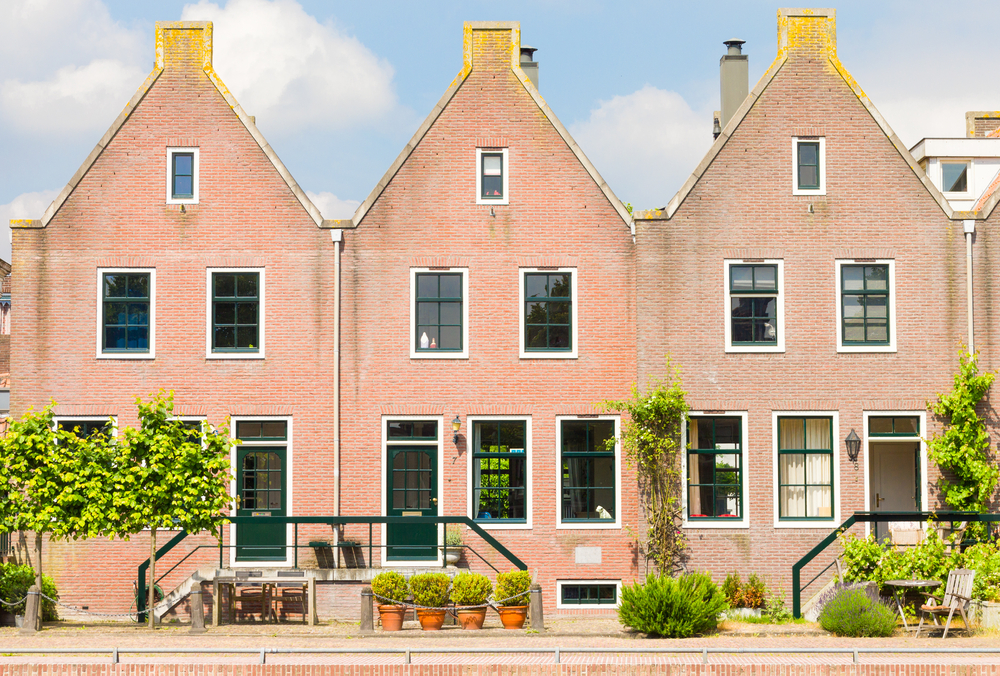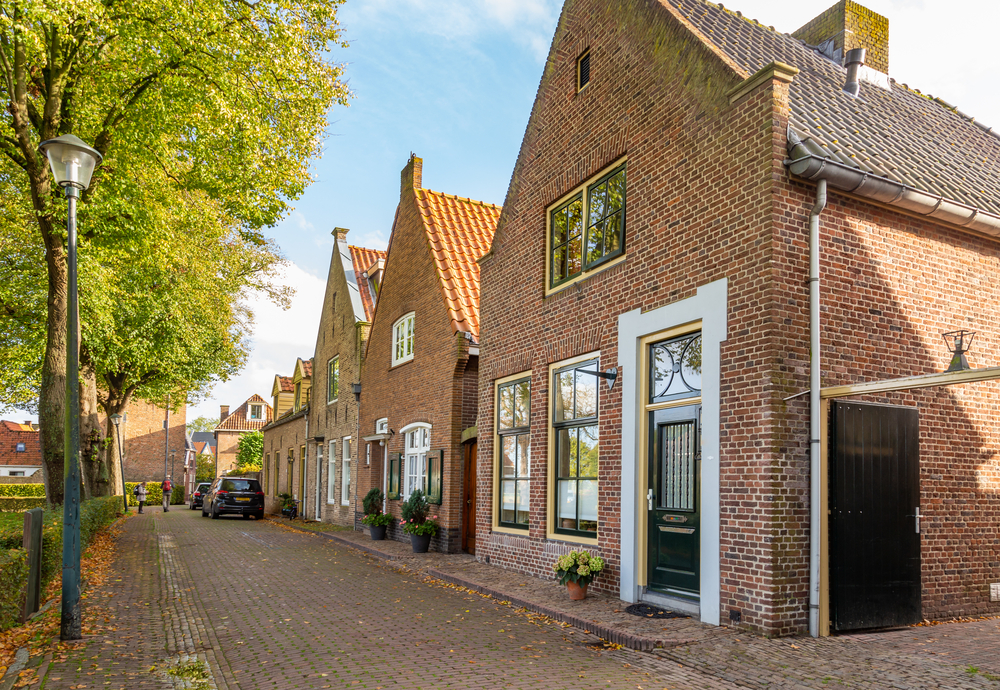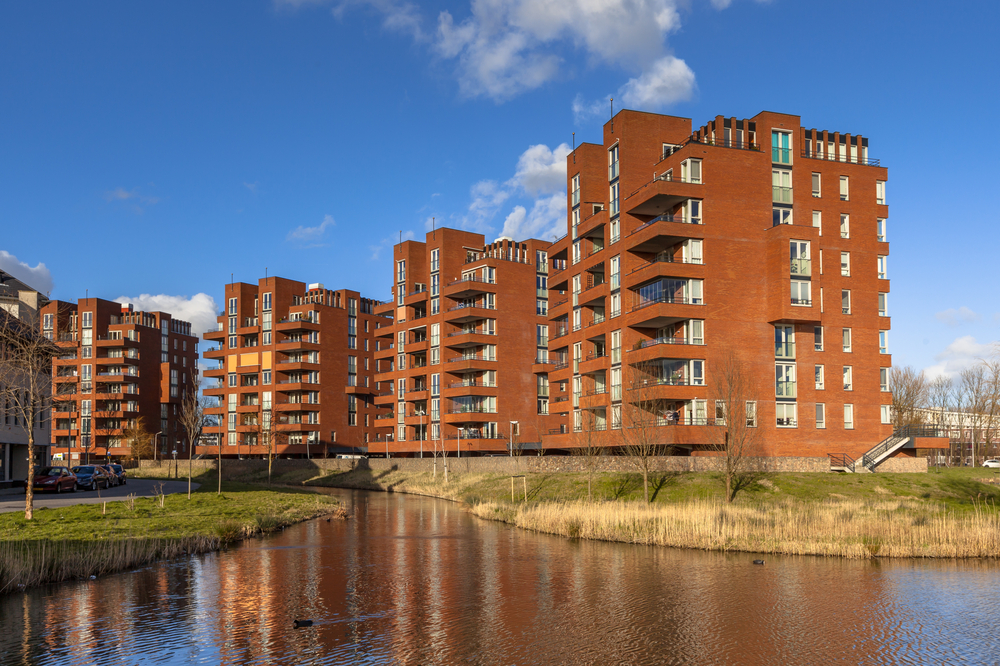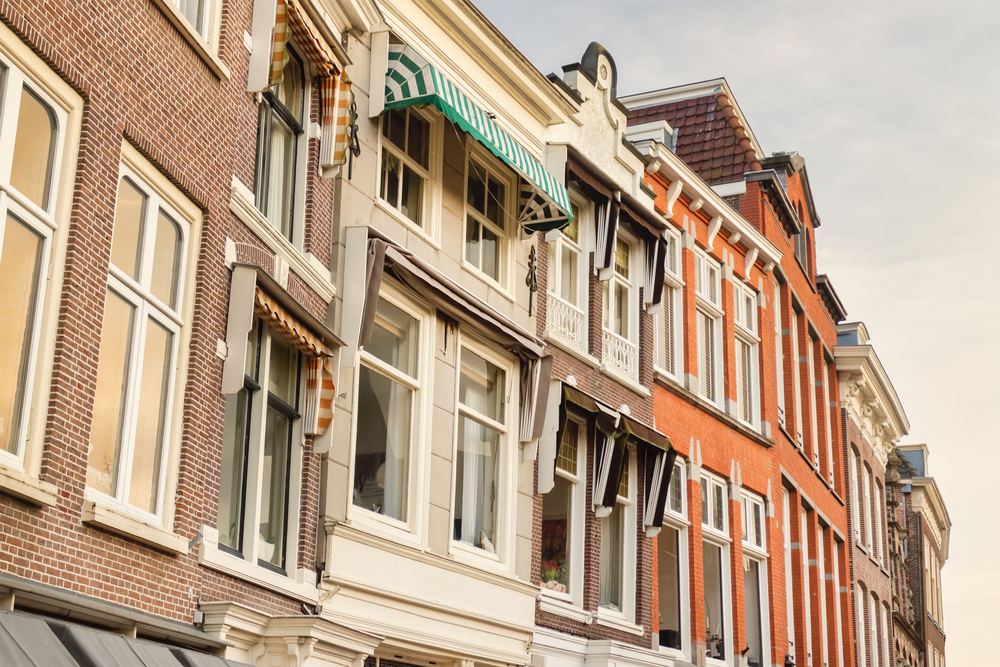When you first move to the Netherlands, a rental property is ideal for finding your footing. However, there comes a time when you’re hoping to settle down. At this point, you’re probably wondering whether it’s best to rent or buy a house in the Netherlands.
And it’s a fair question with many elements to consider: inflation, rising rents, and increasing interest rates, to name a few — let’s tackle it together, shall we?
2022 may be the year to buy a house in the Netherlands
And we’ll waste no time. One look at the current state of the Dutch rental and housing market tells us that if you have the chance to buy a home in the Netherlands, you should probably take it.
Why do we say this? There are a number of reasons. 👇
Dutch mortgage interest rates are rising
We wish we could say that you should consider buying a home in 2022 because it’s easy — but in reality, one reason why we’re saying this is because it’s becoming increasingly difficult.
Dutch mortgage interest rates have been at an all-time low for the past few years. However, 2022 is a year that loves to surprise us — so ta-daa, they’re rising once again.

The rate of increase depends on the mortgage term, but some long-term mortgages have seen their interest rates rise by as much as nearly 2%. If you have to pay more interest throughout the term of your mortgage, then your borrowing power is going to be lower.
READ MORE | 7 questions answered about getting a Dutch mortgage in 2022
Meaning that in 2022, your borrowing power was worth less than it would have been in 2021.
Experts expect that interest rates will continue to rise for the time being. In this case, the longer you put off buying a house in the Netherlands, the more your borrowing power may decrease.
Inflation is reducing your borrowing power
Speaking of borrowing power, another bully picking away at it is the high inflation that’s currently battering the Netherlands.
READ MORE | How much money can I borrow when getting a mortgage in the Netherlands?
Since the beginning of 2022, the cost of living in the Netherlands has risen by a whopping 12%. So, unless your boss plans on giving you a raise to match this amount, your money is going to be worth less this year, meaning that, once again, your borrowing power will decrease.
House prices in the Netherlands are continuing to rise
Okay, we know things aren’t exactly looking promising. Lower borrowing power plus higher house prices equals a market where hopeful homeowners are in a pinch.
But while house prices in the Netherlands are increasing, they’re not increasing as rapidly as they used to. Hey, we’ve got a nugget of hope here!

Since the fourth quarter of 2021, house prices in the Netherlands have risen by 13.7%. While this increase is certainly daunting, it’s worth noting that in 2021, prices rose by 20%!
At least that means things are going in the right direction.
READ MORE | Buying a house vs buying an apartment in the Netherlands: the key differences
Nevertheless, prices are continuing to rise. This means that if you want to give yourself a better chance at securing a home in the Netherlands, you should take the plunge sooner rather than later. 🏊
Rents are also rising
You’re probably thinking how in the hell is buying a home in the Netherlands supposed to be appealing to me right now? And listen, we get it — but have you seen the Dutch rental market?
As of the fourth quarter of 2021, the average rent in the free sector rose by 5.3% — making those mortgage rates look a lot more appealing.
Why you should consider renting in the Netherlands in 2022
This being said, we understand that for many internationals who arrive in the Netherlands, the first thing you do is find yourself a room or house to rent — not put down roots.
And this is a logical move. After all, you’re new to the country, you don’t know how long you’re going to stay for, whether or not you’ll like the area you’re in or which living situation is preferable for you — so why buy a place yet?
There’s no need to fret if you see yourself staying in the rental sector for the foreseeable future. While it’s a bit of a dogfight out there, it’s not all bad news in 2022.
Rent increases are capped
While it’s true that rent in the Netherlands is at its highest ever, the good news is that once you do manage to snag a rental, you won’t face massive hikes in your rent, regardless of inflation.

This is because rent increases are capped in the Netherlands. If you’re renting in the free sector (i.e., you’re not in social housing), the maximum amount that your landlord can raise your rent by in 2022 is 3.3%.
If you’re living in social housing, you can breathe a sigh of relief for now, as rent cannot be increased at all until July 2022. After July, your landlord could potentially increase your rent by 2.3% if you are paying more than €300 per month in rent or a maximum of €25 if your rent is less than this.
The moral of the story, your rent in the Netherlands is not going to jump by €300 all of a sudden — and that’s a win in our books!
Tip: In the Netherlands, there is a housing benefit called the huurtoeslag. This can help cover the cost of your rent if you meet certain requirements.
Buying or renting in Amsterdam
If there’s one thing that we know we need to address in an article like this, it’s Amsterdam. After all, this is where many internationals first plant their feet upon arriving in the Netherlands. So, what’s it like to buy or rent in Amsterdam in 2022?
Buying a house in Amsterdam
Due to two years of a pandemic and the current ongoing war in Ukraine, times are feeling uncertain for potential homebuyers in the Netherlands — and this is reflected in the latest buying trends in Amsterdam.
READ MORE | Moving to Amsterdam: the ultimate guide
As of April 2022, 42.5% fewer homes were sold in the Dutch capital compared to this time last year. While this may sound discouraging, it seems the lowered demand has had an effect on house prices, with the average price per square metre dropping slightly in the fourth quarter of 2021. 🙌
This was especially the case in the North of Amsterdam, so perhaps this is where you should start your hunt.
What is erfpacht when you buy a house in Amsterdam?
Unlike the rest of the Netherlands, when you buy a house in Amsterdam, you must also buy a leasehold for the land that the home is situated on. This is called the erfpacht and you can think of it as a long-term rent that you pay to the municipality.
It’s important to consider the additional cost of the erfpacht when you decided to buy a home in Amsterdam as this will influence your borrowing power.
Note: It is possible to find a house in Amsterdam that doesn’t come with erfpacht — but you have to be lucky!
Renting a house in Amsterdam
The forecast isn’t looking so sunny for those who want to rent in Amsterdam, however. As is the case across the country, the average rental price per square metre has risen in the Dutch capital.
However, not as much as in other regions. In Amsterdam, you now pay an average of €22.45 per square metre, which is a rise of 1.7% compared to 2021. Compared to the average national rise of 5.3%, that’s something.

Buying vs renting a house in the Netherlands: the pros and cons
Unsure what to make of this information? Fair enough! It’s a lot to digest. There are many pros and cons when it comes to buying vs renting in the Netherlands. So here’s a neat little table for you to consider:
| Buying | |
|---|---|
| Pros | Cons |
| Your mortgage and other housing costs are often less expensive than renting. | Your monthly payments might go up when your interest rate period has ended. |
| Mortgage interest and one-time costs of closing a mortgage are often tax-deductible. | You will be responsible for maintenance and repairs yourself. |
| You build equity by making monthly payments and the property will become yours once the mortgage has been repaid. | You may lose equity if the property value declines. |
| You can find a home that matches your wishes (location, architecture, building type). | You have to pay property tax and other communal taxes. |
| You can renovate the property however you want. | You’ll have to arrange insurance yourself (not applicable when buying an apartment, instead you are a member of the owner’s association and pay a monthly fee). |
| You don’t have to worry about your landlord selling the property on. | It’s more difficult to move country if you own a house. |
| Renting | |
|---|---|
| Pros | Cons |
| You can terminate your rental agreement at any time. | Rental prices are high and increase each year (sometimes even up to 10%). |
| The landlord is responsible for maintenance and insurance. | You have limited choice/supply. |
| You have a high level of rent protection. | Options to renovate the house/room by yourself are very limited or non-existent. |
| You don’t have to pay property tax. | When you move, you may have to return the property to its original state. |
| You don’t have to worry about losing money if housing prices drop. | If the landlord decides to sell the property you could lose your home. |
In the long run: buying a house in the Netherlands is financially wise
If you’re planning to stay in the Netherlands for a couple of years (and you know, care about your money like the rest of the world), buying a house will be of interest to you.
Of course, the future isn’t always guaranteed. You also need to think about the risk of value loss that occurs when your total mortgage is higher than the house’s market value.
The risk of buying a house, as well as your eligibility to do so, can be discussed with an expert mortgage advisor. Together, you can make the best decision for your personal situation.
Still doubting about renting or buying a home in the Netherlands? Tell us your thoughts in the comments below!







Great blog. Thanks for sharing this information. Very informative.
Impressive. Love your blog
Hi Abuzer, We family are planning to move to abroad and I think I stumbled on your article at the right time. Since its our fist time to buy a home abroad, I started looking for some help. I am glad I came across your article and It will definitely guide us through our home buying process. Thanks for sharing the pros, cons and the detailed comparison.
Good and useful information, thank you
Good and useful information, Thank you!
It is useful information!
Very informative article. Thank you.
I have a question: I understood that if I plan to live more years (>2) buying can be an option. Monthly morgauge+all fixed expenses will not be higher than monthly rent normally. Here is my question, one of the cons of buying says “You may lose equity if the property value declines”. How is this possible? In the case of rental all monthly rent is lost 100%. Please throw some light.
Buying a new home is full of advantage as in property form you can save lot of things moreover you need not to spend money on rent which is most of reason why people buy new home.
Very informative article. The best part is the pros & cons, so any home seeker can easily decide what they have to do, to buy or rent a house in Netherlands.
great Post! your information is very helpful.Thanks for sharing this article
It is getting more and more challenging to find a house. This was Helpful.
Lmfao just stop. Buying and renting is one big mess in the Netherlands. It’s next to impossible to have your own decent place here, for the past few years.
Anyways, you got your viewers, mailing list and commenters right? All that matters.